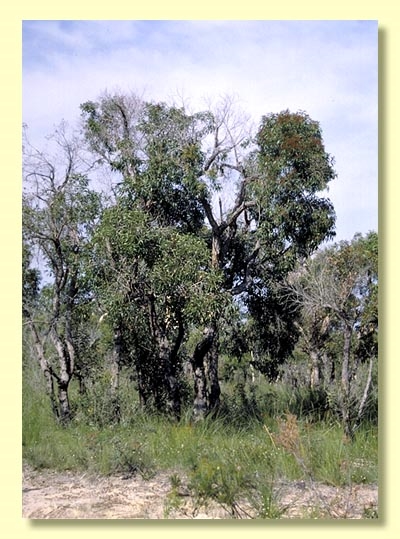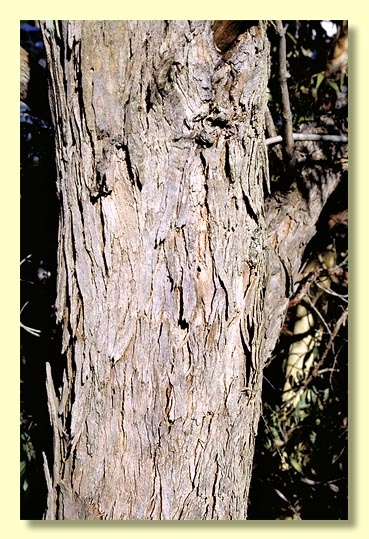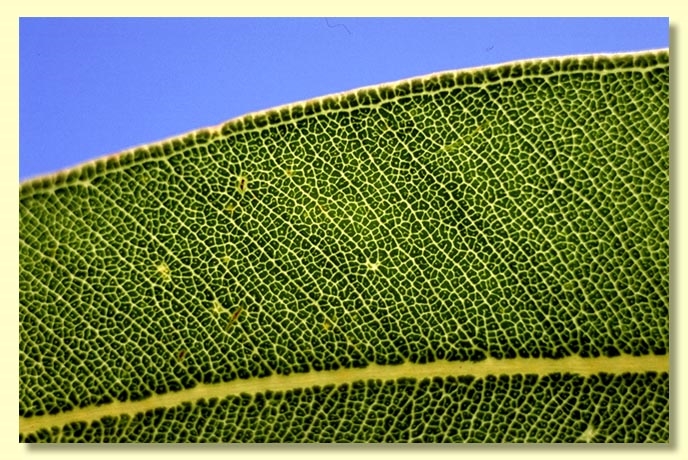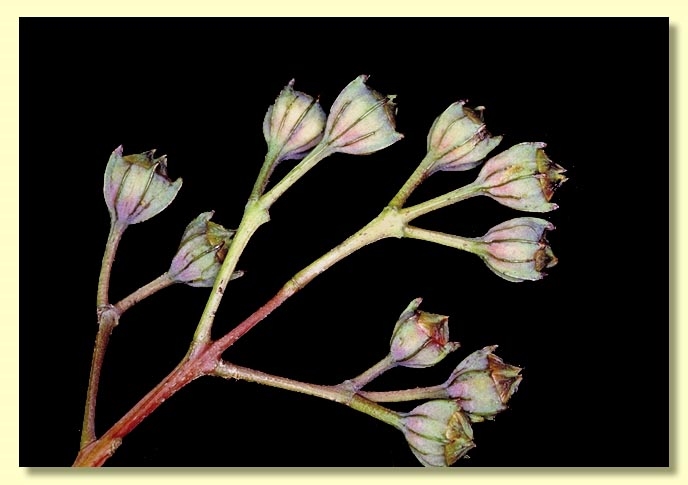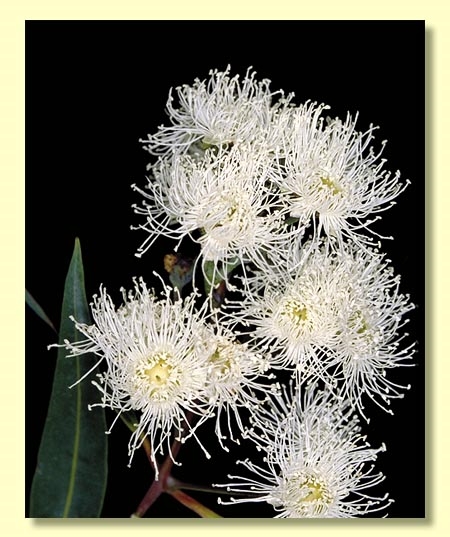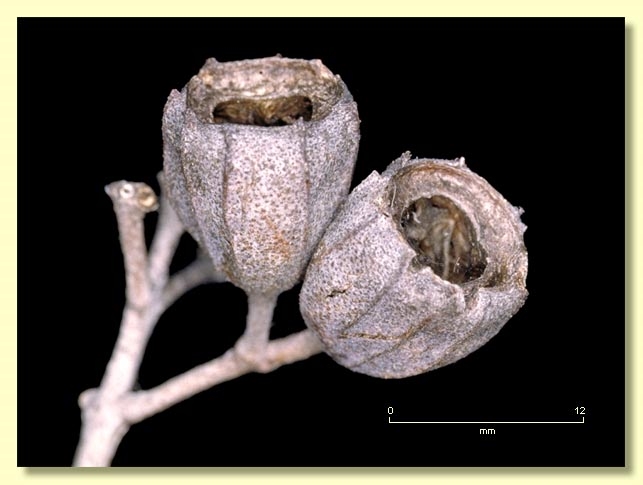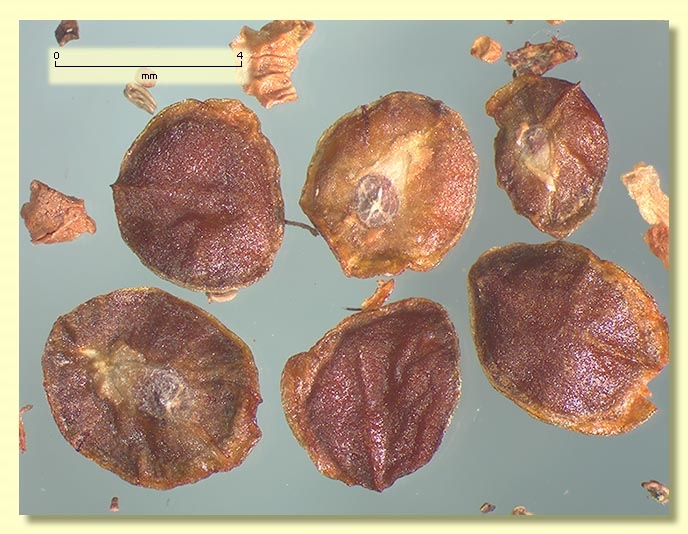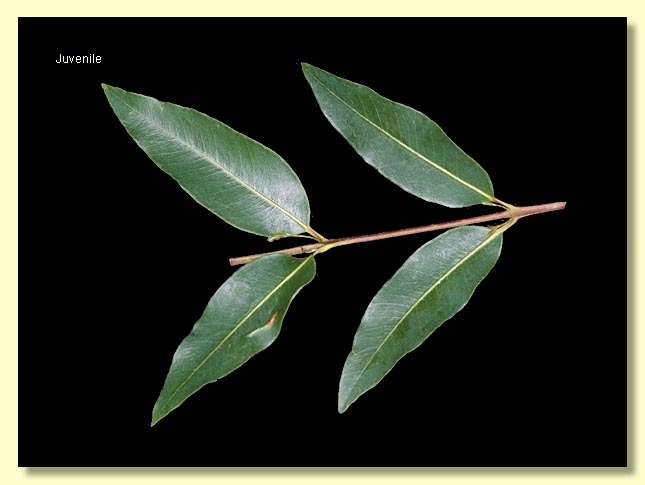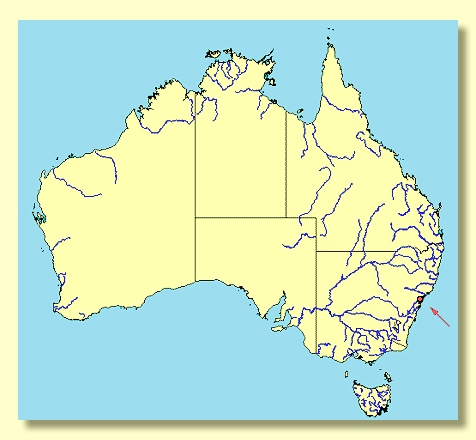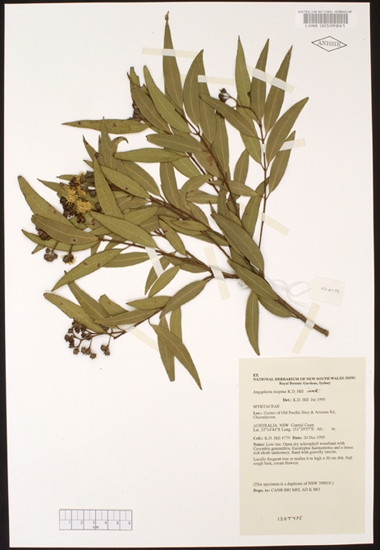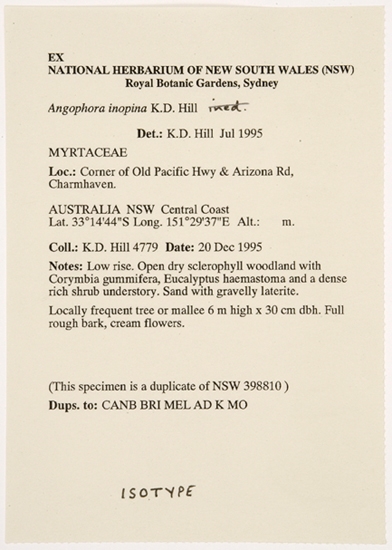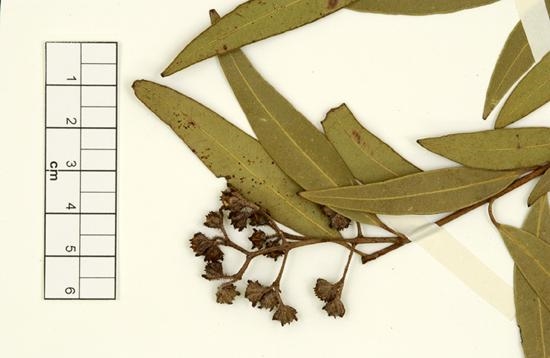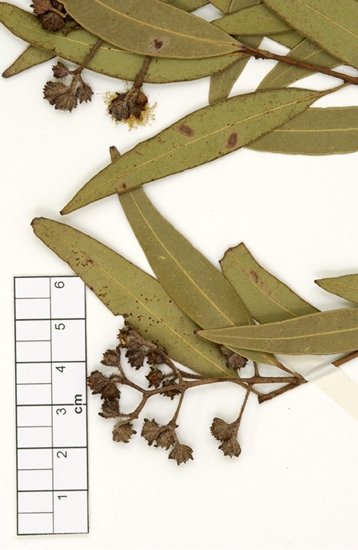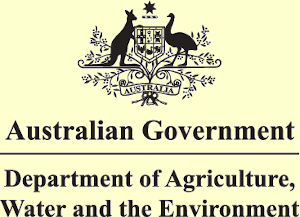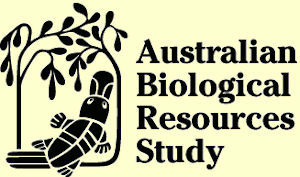Angophora
Euclid - Online edition
Angophora inopina
Small tree or shrub to 8 m tall, often multistemmed. Forming a lignotuber.
Bark rough to the small branches, fibrous, grey to grey-brown. Glands (or ducts) sometimes present in the pith but only seen just below the nodes on young branchlets.
Juvenile growth (coppice or field seedlings to 50 cm): stem rounded in cross-section, glabrous (expected to have hairs early in development but not seen in the field); juvenile leaves opposite, sessile to shortly petiolate, ovate to lanceolate, 4–7 cm long, 1.5–3 cm wide, base tapering to petiole or rounded, margin entire, apex acute, green, glabrous.
Adult leaves opposite, petioles 0.4–1.5 cm long; blade lanceolate or falcate, 4.5–12 cm long, 0.8–3 cm wide, flat, base tapering to petiole or sometimes rounded, margin entire, apex acute, discolorous, glossy, green or occasionally dull, green, penniveined, densely to very densely reticulate, intramarginal vein present, oil glands island.
Inflorescence terminal compound, peduncles 0.3–2.7 cm long, buds 3 or 7 per umbel, pedicellate (pedicels 0.7–1.2 cm long). Mature buds globular (0.5–0.8 cm long, 0.5–0.8 cm wide), hypanthium pubescent, longitudinally ribbed, petals white with a green keel, stamens inflexed, anthers oblong, versatile, dehiscing by longitudinal slits (non-confluent), style long, stigma blunt, mop-like, locules 3 or 4, the placentae each with 5 vertical ovule rows. Flowers white or creamy white.
Fruit pedicellate, pedicels 1–1.3(1.5), cup-shaped, 0.6–1.3 cm long, 0.9–1.5 cm wide, longitudinally ribbed, not glaucous, disc descending, valves three or four, enclosed.
Seeds brown, 4–6 mm long, flattened-ellipsoidal, dorsal surface smooth, hilum ventral.
Cultivated seedlings (measured at ca node 10): not grown yet.
Flowering has been recorded in December.
Angophora inopina is a small tree restricted to the area between Charmhaven and Wyee just north of Sydney. In the original description it was reported to be related to the A. bakeri complex and was distinguished within the group by having broader adult and juvenile leaves. Its closest relative, however, may be A. floribunda, a well-formed tree of the nearby ranges. Both species have relatively broad juvenile leaves. It is not clear how the two differ. A. inopina may be a stunted coastal form of A. floribunda.
A. inopina is listed as "Vulnerable" under the Australian Government Environment Protection and Biodiversity Conservation Act 1999 (EPBC Act). Further information may be found at this web address:
http://www.environment.gov.au/cgi-bin/sprat/public/sprat.pl
MORE ABOUT ANGOPHORA

